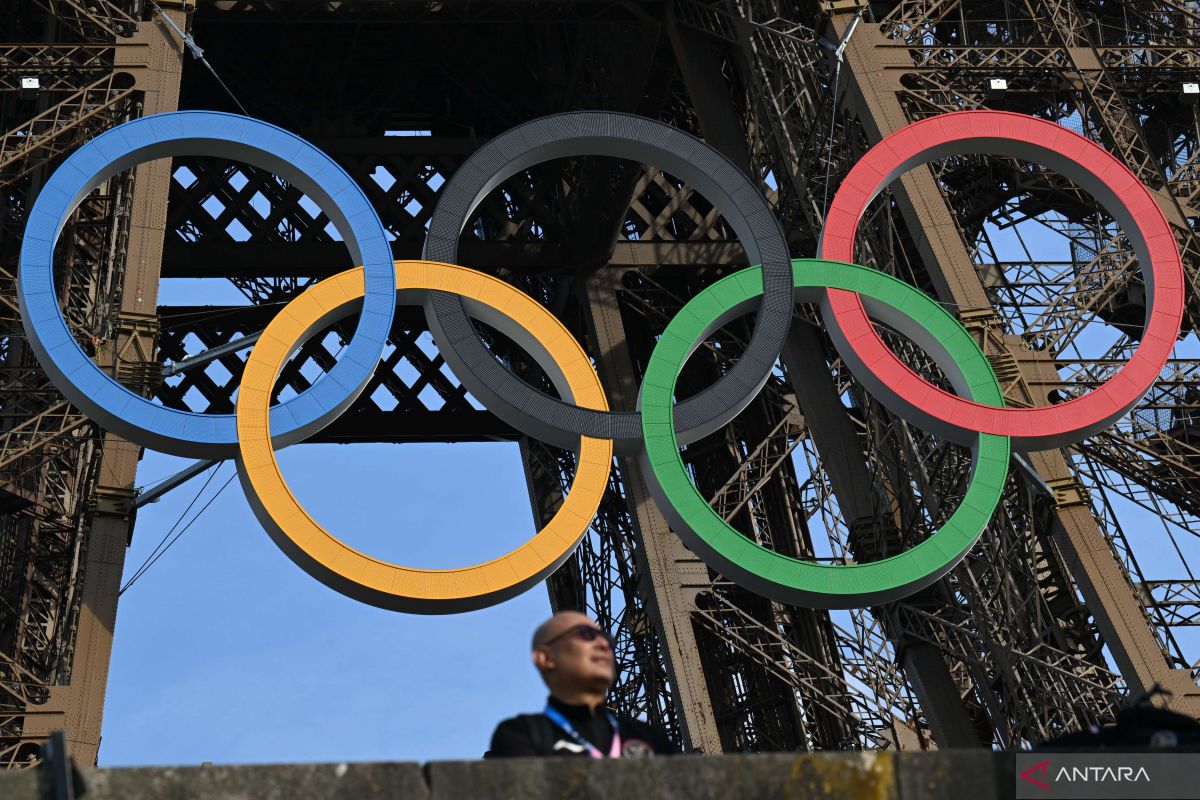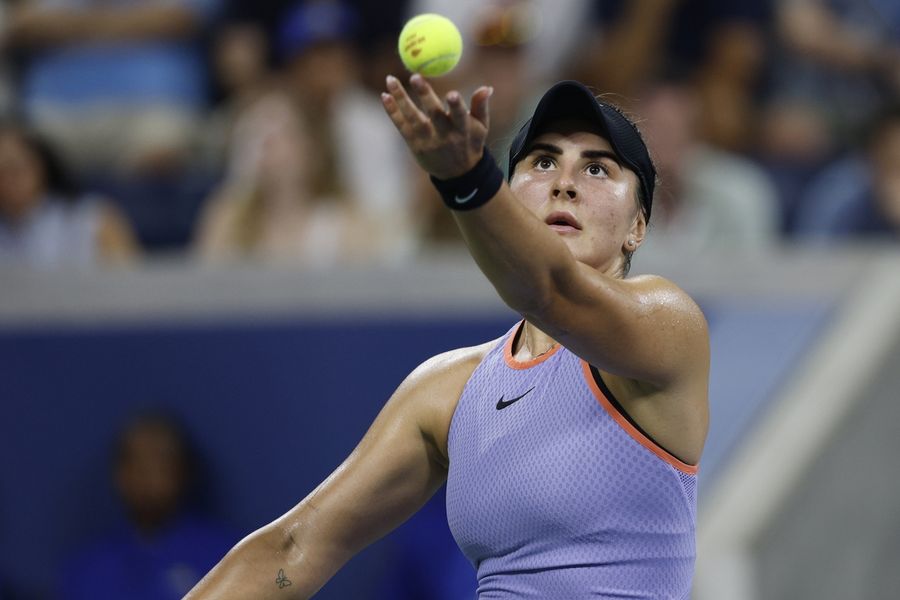The Canadian team lift the Davis Cup trophy after winning the men’s team tennis competition at Martin Carpena Sports Hall, Malaga, Spain on Sunday (27/11/2022). Felix Auger-Aliassime and Denis Shapovalov were the decision makers in Canada’s victory over Australia in the final.
MALAGA, SUNDAY — Leading Canada to win the Davis Cup, the childhood dream of Felix Auger-Aliassime and Denis Shapovalov has come true. For the first time, Canada won the Davis Cup men’s team tennis competition.
After being forced by Germany and Italy to play up to three teams in the quarter-finals and semi-finals, Canada won the final against Australia with a 2-0 victory. Playing in Malaga, Spain, on Sunday (27/11/2022), Canada won the championship thanks to the victory of two simple players, Auger-Aliassime and Shapovalov. Canada became the 16th country to win the title in the event which has been held since 1900.
Shapovalov opened the victory for his team by beating Thanasi Kokkinakis, 6-2, 6-4, while Auger-Aliassime beat Alex de Minaur, 6-3, 6-4. With this result, the doubles number that should have taken place in the third part was cancelled. Originally, Canada planned to partner Vasek Pospisil with Auger-Aliassime, while Australia relied on Max Purcell/Jordan Thompson.
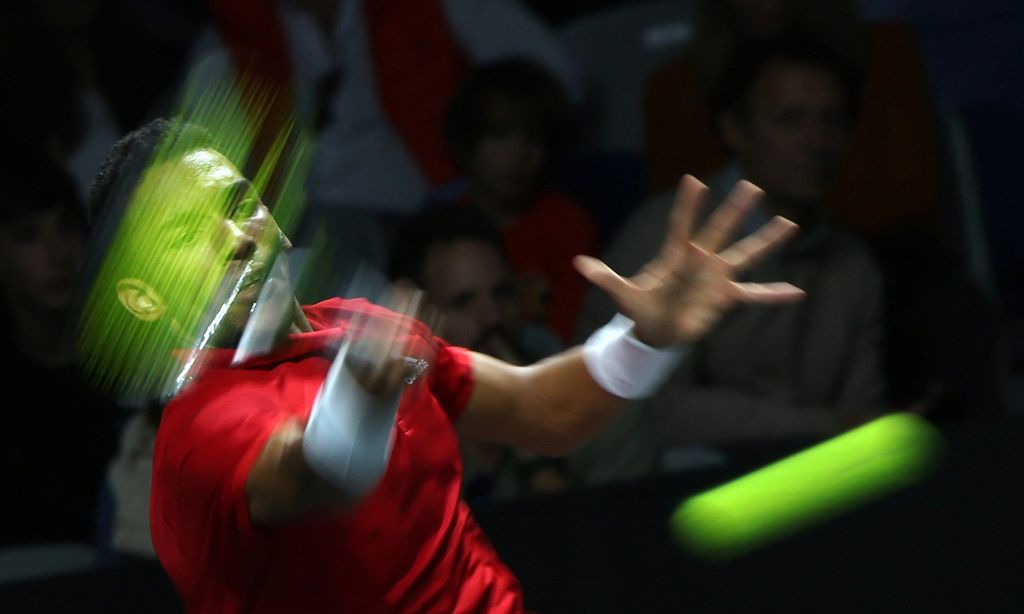
Canadian tennis player, Felix Auger-Aliassime returns the ball to his opponent, Australian tennis player, Alex de Minaur during the Davis Cup final match in Malaga, Spain, Sunday (27/11/2022) .
This result corrected Canada’s failure to penetrate the 2019 Davis Cup Finals in Madrid, Spain. However, Auger-Aliassime and his friends lost 0-2 to hosts bolstered by Rafael Nadal.
“Our feelings are hard to describe. Denis and I grew up together, dreaming of doing such important events, dreaming of winning the Davis Cup. This is a great moment for me and my country,” commented Auger-Aliassime.
Read also: The best era of Canadian tennis
The 22-year-old lost to Nadal in the 2019 final but is currently his country’s mainstay. Since being coached by Toni Nadal, Nadal’s former coach, in April 2021, Auger-Aliassime’s performance has slowly developed. He has achieved a career high position on the world rankings list, ranking sixth since November.
In Malaga, in the quarter-finals until the final, he was undefeated in four matches, in singles and doubles. Meanwhile, Shapovalov was relieved to pay for his loss in two singles matches against Germany and Italy.
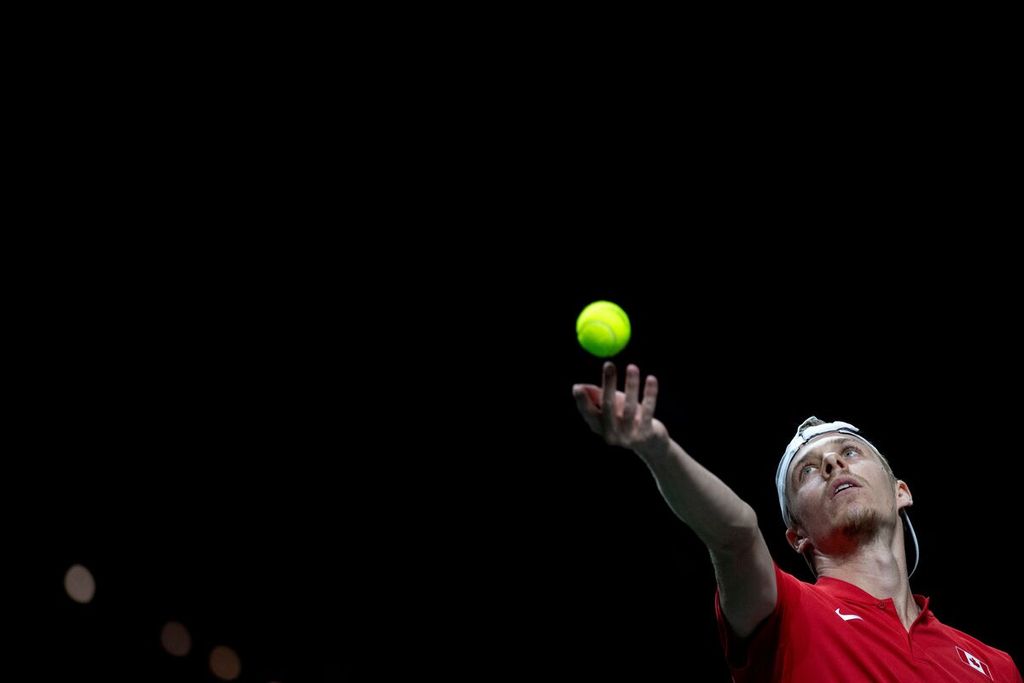
Canadian tennis player, Denis Shapovalov serves during the Davis Cup final match against Australian tennis player, Thanasi Kokkinakis, in Malaga, Spain, Sunday (27/11/2022).
Competing in Malaga followed by eight teams in the knockout stage from the quarter-finals to the final. This phase is the continuation of the group stage, which will be followed by 16 teams divided into four groups, from September 13 to 18 in four cities, namely Hamburg (Germany), Valencia (Spain), Bologna (Italy) and Glasgow ( Scotland) .
“Two close-scoring losses in previous games made me very happy with the way we played today,” Shapovalov said.
The 23-year-old tennis player compared this year’s final to the 2019 final. “The previous final was a new situation, we were relieved when we reached this stage. However, this year we are really chasing after the trophy,” he continued.
Read also: Canada among the champions
Canada has come a long way to becoming the top men’s tennis team this year. They were actually eliminated in the qualifying stages by the Netherlands in March. However, Canada ultimately earned it joker finals after Russia and Belarus were eliminated following attacks on Ukraine since March.
In the preliminary round in September, Canada placed second in Group B after Spain. It was enough to take them through to the knockout stage in Malaga from November 22-27.
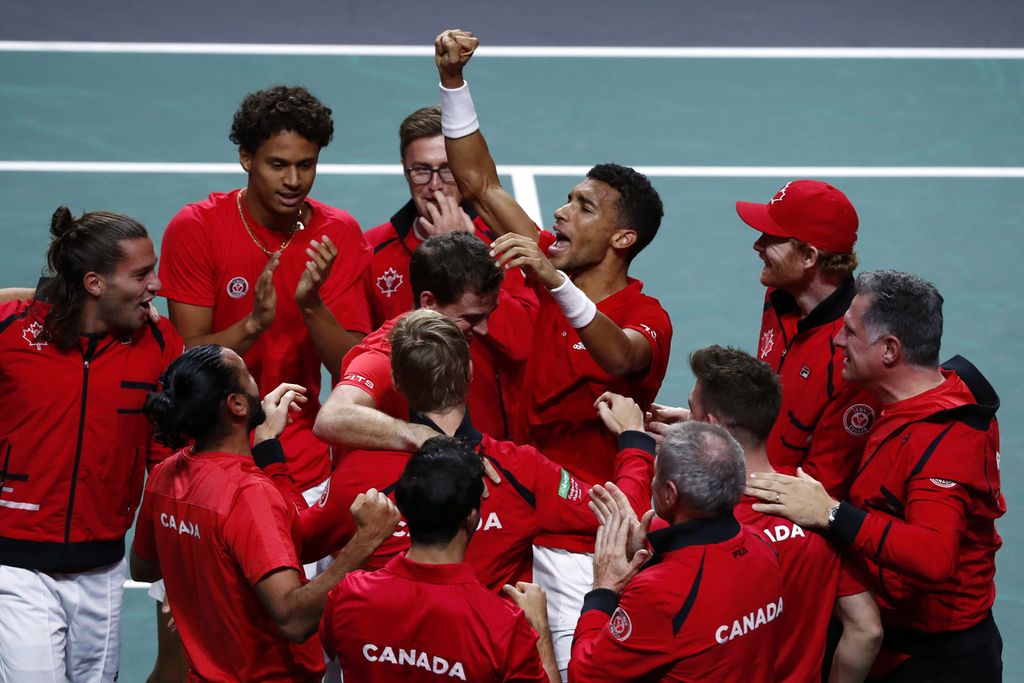
The Canadian team celebrated their victory over Australia in the Davis Cup men’s team tennis final in Malaga, Spain on Sunday (27/11/2022).
Canada once had Milos Raonic, who showed his potential to become the best tennis player in the world by becoming a runner-up at Wimbledon in 2016. Previously, there was a doubles specialist, Daniel Nestor, who won 12 Grand Slam in men’s and mixed doubles. He also won a gold medal at the Sydney Olympics in 2000.
However, the presence of players born between the late 1990s and the 2000s, such as Shapovalov and Auger-Aliassime, as well as Leylah Fernandez among women, brought Canadian tennis to its best.
“We have been dreaming about it for years. Being here and now champions, I find it difficult to explain it. Denis and Felix are no longer children, they have proven their reliability. Another thing is that we were able to become champions thanks to a strong bond,” said doubles specialist Vasek Pospisil. (AP/AFP)
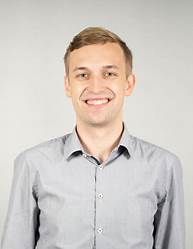
“Social media fanatic. Problem solver. Bacon ninja. Communicator. Alcohol evangelist.”



